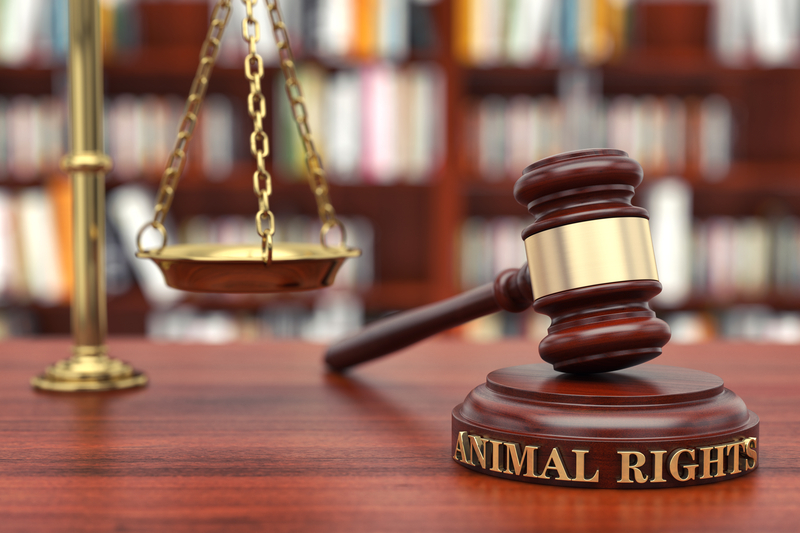
In the United States, quite a few products like pharmaceuticals, cosmetics, and detergents are first tested on animals to ascertain what their effects are most likely to be on people. This has raised several legal and ethical concerns among consumers.
Currently, the AWA only protects mammals. Because of this, the AWA now applies to relatively few animals widely utilized in the study.
However, some research suggests that the use of IACUC's as a method of regulation and monitoring is unreliable. A 2001 analysis by Wesleyan University showed that conclusions between different companies' and associations' IACUC's were unrelated and inconsistent.
The very same inspectors can also be called upon to conduct pre-licensing inspections which account for at least 4000 additional inspections. Because of this, APHIS was criticized because of its lack of tools and thoroughness. Indeed, several APHIS and USDA employees have criticized the system, themselves, and have given anecdotal reports of being advised to turn a blind eye to violations simply due to the additional work such reports would produce.
Another way that animal testing is controlled is through the Public Health Service (PHS). OLAW enforces the standards in this Guide for the Care and Use of Laboratory Animals, which can be printed by the Institute for Laboratory Animal Research. The manual comprises in its purview all of the vertebrate species, such as birds and rodents. Thought the Guide is more inclusive than the AWA, OLAW will just conduct inspections when there's a suspected or alleged breach, and even then only when the alleged violation cannot be solved through written correspondence.
For example, accreditation by the Association for Assessment and Accreditation of Laboratory Animal Care International (AAALAC), is regarded as the highest standard. Accreditation is dependent on routine AAALAC site visits and program evaluations performed by the member institution every 3 years.
You might also want to talk with an attorney to see whether you've got a basis for filing suit your self, or if there's another means of reporting your concerns and quitting the improper animal testing. Alternatively, if you're a business or institution that engages in animal testing which wishes to ensure compliance with law enforcement or personal regulation, you should consult with your business counsel.
Animal Crossing and Other Crimes
Statistics reveal a strong correlation between animal abuse and the commission of additional offenses.
While legislatures are hesitant to punish a person partially for the prospective crimes that haven't yet been committed, some statistics reveal that it is almost inevitable for a person who abuses animals to commit other crimes.
Statistical Data
Notorious serial killers frequently have a history of animal abuse. 21-year study discovered
That 70 percent of animal abusers afterward proceeded to commit other offenses. The analysis also discovered that 100 percent of individuals who had perpetrated sexual homicide had a history of animal abuse. About two-thirds of animal abusers also assaulted a person.
Another study showed that people who abused animals were 500 percent more likely to be arrested for a violent offense and 300 percent more likely to perpetrate crimes associated with drugs compared to people who lived in the same area and who had been the same age and sex.
Animal abuse often leads to misuse of others in precisely the same household. Approximately 80 to 90% of sufferers of domestic violence say their abusers began to abuse pets until they mistreated their later victims. Unfortunately, this frequently builds a negative cycle of abuse since roughly one-third of abused kids wind up abusing animals themselves.
Professional Observation
Likewise, many police officers, social workers, and prosecutors also report that they have seen a connection between a history of animal abuse and the capacity to predict violent crimes later on.
Predictive Features
Animal abuse can often help forecast the potential for an individual to commit crimes in the future, including very serious and violent crimes.
Animal Abuse Laws
Many nations do not provide for significant penalties for animal abuse crimes. This is because most states treat the animal as property. Thus, most animal abuse or neglect just holds the prospect of a misdemeanor charge, which usually carries a maximum jail sentence of one year or not.
Due to the incidence of particular offenses, some countries have started taking monster abuse seriously. By way of example, creature fighting often conveys more serious charges. Additionally, animals that are considered companion animals might get the offense to be elevated to a more significant degree. There might be other things that cause the crime to be considered"aggravated" and therefore more severe.
Psychiatric Intervention
Some countries have considered passing legislation that would require individuals convicted of animal abuse to undergo psychiatric intervention for a condition of their release. This therapy would include early intervention measures including evaluation and treatment. The effort would be to modify the behavior of the offender to dissuade the offender from establishing a pattern of escalating abuse.
Other Movements
Rather than focus on intervening in cases involving animal abuse, some states are focusing more on keeping animal abuse criminals locked up for longer lengths of time so that they are eliminated from the roads and by the ability to misuse other men and women. However, obviously, as with any restriction, some owners may constantly sense that rules are meant to be broken (or at the very least, that an exception should be made only for them) and overweight pets find their way with surprising frequency into a deed.
Bills of this sort may concentrate on juvenile offenders and require them to be appraised by a qualified mental health professional. While some bills provide for this cost, others might impose the cost on the offender.
Restricted communities.
Sadly, most men and women view their pets as members of their family, even if purchasing them will put the owner in direct breach of their association's covenants. So, requesting someone to eliminate their pet, though they should have understood before purchasing or renting in the community there was a weight limitation, is often the equivalent of requesting individuals to give their child.
Let the animal puns begin...

The Replacement Dog
In 1 case I handled, an owner had a Border Collie (a breed which averages between 30-45 lbs ) in a community with a 25-pound weight limitation for pets. The association asked us to start legal proceedings against this owner to enforce the weight limitation. .ahem. .expired. In one of the more unusual tasks I ever performed within my career, I had been asked by the customer to call the veterinary clinic to affirm that the dog had chased his final mailman and had passed into the great dog park in the skies. He had, and I thought I saw a gloomy, but mutually agreeable result in the litigation in our grasp.
I had been incorrect.
The case would have to go all of the ways through to the last judgment and everyone knew it. He dropped on his bills, ate his savings while paying his lawyer's fees, and was in jeopardy of entering mortgage foreclosure. The proprietor became depressed and this case was going to get a whole lot hairier (furrier?).
While pets aren't individuals, and so, cannot activate the anti-discriminatory coverages of the Fair Housing Act or the various state and federal agencies set up to guarantee equal housing rights, their owners are. If the owner has a disability they may be eligible for a"reasonable accommodation" to permit that individual to reside in the community. In the event you're not yet familiar with the concept, a massive body of law requires associations to make"reasonable accommodations" for people that have disabilities. What constitutes a"reasonable accommodation" is extremely broad and, under the right conditions, just about anything could be eligible. Each one has to have is a legally recognized disability, such as alcoholism or depression.
So, when our local dog enthusiast got a psychiatrist to diagnose him as depressed, the Association's case becomes a dog. To treat his depression, the proprietor's doctor prescribed (you guessed it) a companion animal to improve his mood. As a result, the association had to earn reasonable accommodation by permitting an exception to its limitation about pet weights. The case settled fairly quickly at the point, though the association was able to recover a few bones for its attorney fees.
Kibble for Thought
Before beginning a full-blown lawsuit to apply an owner with pets, bear in mind that the truth can turn rather fast. Had the owner never become miserable, the institution might have virtually rolled over and played dead and still won the situation. But, discrimination claims require a homeowners association to shield against the nearly limitless resources of the authorities and also to put up with the governmental and social embarrassment of being tagged as a bigot. Many would agree that a homeowner association would need to be barking mad to take on that fight unnecessarily.
But if you believe this situation is an extreme case, think again. Other examples of odd pet cases abound. For instance, did you know a pony could be considered a pet and okay to live inside a condominium unit?
The moral of this story: while pet restrictions are common that they can be tricky to enforce. Every case differs, so consult with your institution's lawyer before deciding your course of action, and you will make sure to stay top dog on your community for a long time to come.
Is it lawful to Raise Wild Animals or Maintain Them as Pets?
Anyone who has grown up near a playground, nature preserve, or in a rural setting probably came across a wild creature that he or she desired to embrace.
Regrettably, whilst infant wild creatures can be adorable (and sometimes the whole grown ones are, also ) it is generally not safe to keep a wild creature. When wild animals grow up they can become unpredictable and dangerous. Even famous animal handlers are attacked by non-domesticated animals they raised, and those folks are experts in animal behavior and training. Obviously, the larger the animal, the more dangerous or deadly this attack could be, but small Aside from physical attacks, it is often dangerous to keep wild animals because one is effectively training the animal to not worry about humans. This implies that in case the creature ever will be released into the wild, it may not respond as it should when approached by people. This might be problematic, particularly in bigger creatures, that may see individuals as a source of food and be competitive. Indeed, the creature may not understand the behaviors essential to living in the wild, for example searching, avoiding other predators, or foraging, and might quickly perish upon release.
Wild animals may additionally carry a plethora of diseases and possibly dangerous parasites which could affect different animals as well as humans.
As a result of these, and several other considerations, most states have laws prohibiting one from occurring in wild animals as pets. It is often illegal to even care for ill, injured, or orphaned animals. However, it is possible to get licenses and permits for such activities, and many regions do have wildlife rescue associations or wildlife hospitals that can help in these circumstances.
More exotic animals (i.e., people who usually reside in the wild in different countries) often require special permits just to enter the country, let alone to own or possess one. Examples include reptiles, large cats (such as lions and tigers), particular reptiles, and various birds. These creatures are sometimes kept as pets, but usually, they're only legally brought into the country for use in the entertainment industry or zoos. Individual ownership is possible, but generally heavily regulated, so many have turned to the black market to smuggle such critters into the U.S. Obviously, those caught smuggling animals into the country can face heavy fines, confiscation of their critters, and prison time.
When an exotic or wild animal attacks someone, the proprietor may frequently be held to a higher standard of accountability than those coping with parasitic monster strikes like dog bites. This is due to the character of the creatures involved. One is expected to recognize that a wild animal, particularly a large one, is more dangerous and requires a greater degree of control than a domesticated animal.
As such, those dealing with wild or exotic animal attacks may face not only the standard kinds of accountability but may also have to contend with the possibility of punitive damages if it could be proven that the person acted so reluctantly in their handling of the wild animal that an assault was almost inevitable.
Bear in mind, wild creatures have evolved to be independent beings, well-suited to survive in the hostile conditions of the native habitats.
They have particular needs, behaviors, and instincts that won't simply go away as a well-meaning owner treats the creature in ways he or she considers kind. If you or someone you know has struck a wild animal that requires help, there are quite a few apps available to rehabilitate injured wildlife and return them to the wild. You can usually find these wildlife hospitals online or you may be able to speak to your regional animal control to find out more. On the flip side, if you need assistance obtaining permitting to have a wild or exotic animal, you should contact an attorney in your area who can assist you.
